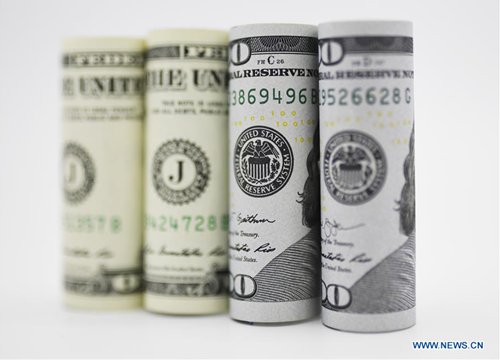
Photo: Xinhua
Ahead of the two-day meeting of G20 finance ministers and central bankers scheduled to be held in Jakarta on Thursday, US Treasury Secretary, Janet Yellen, reportedly called on China to be "more active" in the G20 debt relief efforts.
Yellen said in an interview with AFP that the G20's Debt Service Suspension Initiative (DSSI) "has not been going very rapidly" and despite that China is the largest contributor to the initiative, she indicated that the US "would hope to see more active participation" from China.
Passing the buck to China apparently has become a catch-all method of American politicians to cover up for their irresponsibility. The DSSI was proposed to ease pressure on debt repayment of low-income countries suffering the economic impacts of COVID-19. Not only has China fully implemented the initiative, but the total debt service payments suspended by China is the largest among G20 members.
"In addition, China's non-official financial institutions have also taken debt service suspension actions in a comparable manner with reference to the DSSI provisions, which is rare among G20 countries," Wang Wenbin, spokesperson of China's Foreign Ministry, said on Thursday.
Meanwhile, as Wang pointed out, multilateral development banks and private creditors, mainly commercial institutions of developed countries, account for a large part of the debt structure of these heavily indebted poor countries (HIPC). For example, multilateral financial institutions and commercial creditors account for more than three quarters of the total external debt owed by African countries.
According to the headlines on Western media, it seems that China was the only country that should put in efforts, even though it is already the largest contributor to the G20 initiative. Such narrative by Western politicians simply revealed their hypocrisy and selfishness.
What US politicians do not want to mention in international media is that the US Fed's increasingly hawkish monetary policy is piling up pressure on the global financial system, especially on emerging markets.
Holding a monetary hegemony, the US is notorious for its history of shifting its own economic burdens onto others. As the Nixon-era US treasury secretary John Connally once said, "the dollar is our currency, but it's your problem."
Over the past two years, the quantitative easing spree by the US has flooded global markets with liquidity, pushing up exchange rates and inflation in emerging economies. When the tapering started, emerging markets would face series of crises, including rapid capital outflow, increasing financing cost and currency devaluation.
In addition, with the US' national debt recently topped $30 trillion for the first time in history, it is hard to figure out how the world's largest economy could give a hand to ease the debt burden of poor countries.
By sharp contrast, China did not only offer support to low-income countries under the G20 framework.
According to the white paper titled China and Africa in the New Era: A Partnership of Equals released in November 2021, China has announced an exemption from debt incurred in the form of interest-free Chinese government loans due to mature by the end of 2018. It will apply to Africa's least developed, heavily indebted and poor countries, landlocked developing countries and small island developing countries that have diplomatic relations with China. During the COVID-19 pandemic, China cancelled the outstanding debt of 15 African countries in the form of interest-free loans that matured at the end of 2020.
On the other hand, China's cooperation with other developing countries has focused on the essential need of local economies and the sustainable growth of cooperative projects. The flourishing Belt and Road Initiative proposed by China is a perfect illustration of the mutually beneficial pattern of cooperation.
As the once-in-a-century health crisis keeps battering the global economy, it is true that the lower-income countries need more support and the international community should join hands to tackle the growing challenges facing all of us. It is hoped that the US, as the world's largest economy, could take its own responsibility and stop stirring up confrontation or trying to shift blame to others.
The author is an editor with the Global Times. bizopinion@globaltimes.com.cn




